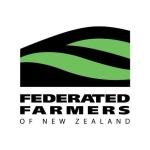Meating the future needs of the meat industry
Federated Farmers is praising the Ministry of Agriculture and Forestry (MAF) for its leadership in respect to its Meat: The Future study published this week.
“There is a big bright future in meat protein and it’s great to see MAF championing that,” says Bruce Wills, Federated Farmers Meat & Fibre chairperson.
“Historically, the industry in New Zealand has at times resembled a rolling civil war rather than a cohesive industry with a common direction.
“Shrinking isn’t the solution anymore when for the first time as farmers, New Zealand is physically located in the right region at the right point in time.
“Distance is no longer an obstacle given Asia has a population of over four billion people, some 60 percent of every human being on earth.
“Protein is in huge demand as many countries increasingly become net food importers.
“Last year, Federated Farmers did something positive for farmers by launching our T150 campaign to seek a price of $150 for a good mid-season lamb by 2013. While we are making good progress towards that target, it’s also a reflection of basic supply and demand.
“With the number of breeding ewes now down to 26 million animals, New Zealand has lost almost two breeding ewes a minute, every minute of the day, since 1984.
“I know Meat & Wool NZ and Federated Farmers stand shoulder to shoulder in seeking a sustainable future for the New Zealand meat industry. Growth rather than managed decline must be the order of the day, especially for lamb and mutton.
“Of the four future scenarios envisaged by MAF in its report, Federated Farmers is most attracted to new market orientations and growing from greater knowledge options.
“We must move away from the Eurocentric view that dominates our industry’s past and current thinking. Asia is where it’s at in this century and it happens to be a lot closer to New Zealand than Europe is.
“Developing new markets reinforces the need for our meat industry to be knowledge driven and not output obsessed.
“I remain highly optimistic about the meat industry and with almost 60 percent of humanity camped on our doorstep, who wouldn’t be. The key going forward is to create a shared vision and approach that will come from developing a New Zealand Red Meat Strategy,” Mr Wills concluded.
